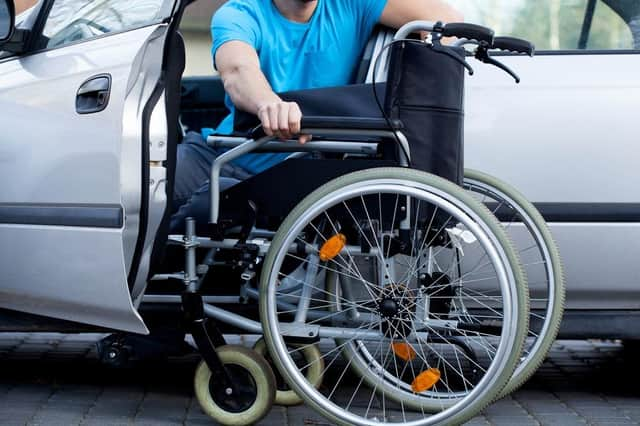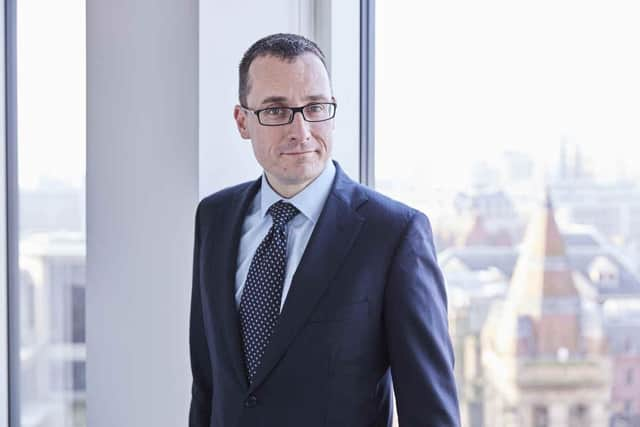Where to find help after life-changing personal injury: Top-ranking Leeds legal expert answers your questions


What are some of the most common types of cases you work on?
I mainly work on claims arising from accidents at work and road traffic accidents. However, I also have experience with more unusual types of claims such as accidents arising from participation in sport and equestrian cases.
How can serious injury patients find legal representation?


It can be difficult for injured people to know where to start when looking for a specialist solicitor. Most people have little experience of engaging a solicitor. With a seriously injured person, it is very unusual that they know what to look for in a serious injury solicitor at the time of their injury.
It is important that they ask about the solicitor’s experience and qualifications. In particular, I recommend asking your prospective solicitor about the number of cases they have acted for, involving the type of injuries sustained. Does the solicitor have membership of any specialist injury panels? Also, is the solicitor and the firm rated by the two major independent guides to the legal profession, the Legal 500 and Chambers and Partners?
What should a serious injury patient consider when instructing a solicitor?
Again, it’s important not to be afraid of asking your prospective solicitor questions. They should be proud of the service they provide and happy to discuss it with you.


Ask them about the number of cases they are handling at any one time and their experience with high-value cases, in particular. Does the solicitor reassure you that they have a clear strategy for dealing with your case and also about the level of personal service which is going to be provided to you?
Who is the opponent in a serious injury claim?
You can pursue a claim for compensation if you can show you have been injured through the fault of a person or company who owed you a duty of care. In a road traffic accident the person at fault might be another driver. In an accident at work, your employer may be at fault for your injuries.
However, although the claim might be against that individual or company, there will almost always be an insurance company sitting behind them who actually make the decisions on the case and ultimately pay any compensation you are found to be owed.
What are interim payments and how can they help?
Most people will be aware that they will receive a sum of money if their claim succeeds, at the end of the process.
Taking a serious injury claim from start to finish can take two or three years, potentially longer. However, the legal system recognises that injured people will potentially require money as a claim proceeds.
In many cases, it is therefore possible to obtain money in advance on account of the final compensation payment from the defendants. This is known as an interim payment. This is a key part of compensation claims and should be pursued with vigour by your solicitor in a serious injury case.
As well as the lawyer, which other professionals are involved as part of a serious injury claim?
Most serious injury cases will involve a case manager at some point, who is a rehabilitation professional. They will usually be a nurse or occupational therapist by background.
The case manager will coordinate your rehabilitation needs. This is a key part of a serious injury claim and it is really important that you have a good working relationship with your case manager.
There will be a large number of independent experts engaged by both sides in a serious injury claim, to report to the court on the extent of your injuries and their effects. This is a key part of building the evidence in relation to your case.
What charities and other services can help serious injury patients?
There are lots of different charities available which support survivors of serious injuries. They are mainly based on the type of injury the person has sustained. Among the most prominent charities are Headway UK, Backup, the Spinal Injuries Association and Children’s Trust.
These different charities offer a wide variety of services. A specialist solicitor should be familiar in broad terms with the services that charities in this sector provide.
How many cases do you work on at any one time?
At Stewarts, we pride ourselves on operating a low number of caseloads. Each of us handles no more than 10 to 12 cases at any one time. We believe this allows us to provide the best possible service to our clients, and allows us to quickly make time for all of our clients when necessary.
How long does a case typically run for?
Serious injury cases typically run for two to three years, although they can take longer if they are strongly defended. They can also take longer if a child has been injured as it can take much longer to determine the future effect of a child’s injuries than it can with an adult.
Can you share any memorable cases that you’ve worked on?
All of the cases I’ve dealt with over the years have stuck in my mind in one way or another but I particularly enjoy the cases in which I’ve obtained a new property for my client before the case has settled. There is a tremendous sense of achievement in helping a client to the position where they can purchase and adapt the house in which they are going to spend the rest of their lives.
Get in touch
If you or a family member have been injured or you would like a second opinion on an ongoing case, Ben Townsend is a partner in the Personal Injury team at Stewarts.
To get in touch click here.